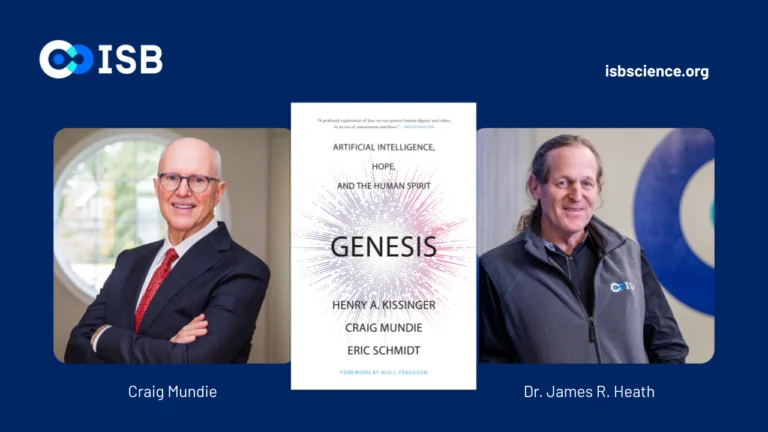Dr. Sean Gibbons Promoted to Associate Professor
Gibbons – an expert in microbial ecology and evolution, computational systems biology, the human gut microbiome and its impacts on health, and head of ISB’s Gibbons Lab – has been promoted to Associate Professor.

Dr. Sean Gibbons – an expert in microbial ecology and evolution, computational systems biology, the human gut microbiome and its impacts on health, and head of ISB’s Gibbons Lab – has been promoted to Associate Professor.
“Sean’s achievements since joining ISB in 2018 as a Washington Research Foundation Distinguished Investigator have been spectacular,” ISB President Dr. Jim Heath said. “With his focus on the microbiome, he brought a whole new area of research to ISB and has collaborated with many other labs.”
Since 2021, Gibbons and colleagues have published papers showing the gut microbiome’s role on shaping the human blood metabolome, how the gut microbiome’s composition can predict a patient’s response to statins, how weight loss success or failure can be determined by the genetic capacity of the gut microbiome, and how the gut microbiome can determine healthy vs. unhealthy aging trajectories. His research has been covered by a variety of news outlets, including a feature article in The New York Times.
In this ISB-Seattle Science Foundation video, Dr. Sean Gibbons discusses the human microbiome, how it affects our health, how it changes the way we look at health care, and more.
In the wake of the pandemic lockdown, Gibbons also spearheaded an annual virtual microbiome course and symposium series. This free series has been incredibly successful. Over the past three years, more than 4,000 registrants from more than 80 countries have participated. Videos of the 2022 three-day program can be viewed here.
In 2022, Gibbons secured a large R01 grant from the National Institutes of Health, was recognized on Clarivate’s Highly Cited Researchers list as among the top 1 percent of the world’s most cited researchers, and was honored as a Health Care Leadership Awardee by the Puget Sound Business Journal.
“This promotion to Associate Professor is incredibly gratifying,” Gibbons said. “I have the great fortune of working alongside incredible scientists in a field that is yielding important, actionable findings at breakneck pace. And none of this would be possible without my incredible research team, whose passion and curiosity keep us at the leading edge of our field. I look forward to many more years of research at ISB.”
Prior to joining ISB, Gibbons completed his postdoc training in the Department of Biological Engineering at MIT, and he received his PhD in biophysical sciences from the University of Chicago.
You can keep up with Gibbons on Twitter and on the Gibbons Lab website.
In this video, Drs. Sean Gibbons, left, and Christian Diener discuss their research showing which blood metabolites are associated with the gut microbiome, genetics, or the interplay between both, and why these findings are significant.


